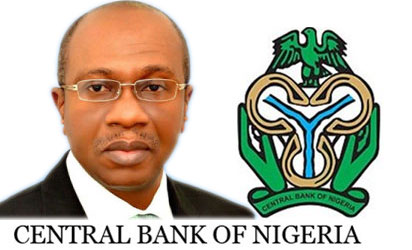TIMELY securitisation of the Ways and large exposure will help the Central Bank of Nigeria (CBN) improve its asset quality to the benefit of its shareholders.
It would also provide room for the Federal Government to scale down the cost of governance, expand the tax base and instill efficiency in revenue-generating agencies of the government to reduce recourse to CBN Ways & Means support.
This was contained in a latest report published by Cowry Assets Management Limited, titled, “Debt Rising: Will Nigeria Fall Off the Fiscal Cliff as FG Gets Nod to Securitise N22.7trn?” and made available to the Nigerian Tribune.
“In our opinion from the above, the financing is costly for the FGN at interest rates of Monetary Policy Rate (MPR) at +300bps as this form of lending has several macroeconomic implications.
“Such could be the impact on prices which causes an acceleration of money supply growth and also aggravates inflation (March 2023: 22.04 percent),” the report read in part.
The report further noted that Nigeria’s increasing debt levels are a cause for alarm and has prompted questions about the country’s fiscal sustainability.
It added that Nigeria’s inability to diversify its revenue base coupled with the frail economic recovery due to the pandemic with slow growth momentum has continued to raise more concerns while her public debt levels continue to widen amidst the existence of a moderate risk of debt distress.
Recently, the Nigerian Senate gave its nod to the Federal Government to restructure the N22.7 trillion loans from the CBN under its Ways and Means policy provisions.
“This provision, however, permits the government to obtain credit facilities from the apex bank in the wake of a significant revenue shortfall. Meanwhile, the restructuring will see the loan securitised in the form of bonds and treasury bills.
“However, the Central Bank has contravened the CBN Act of 2007 section 38(2) which stipulated that all advances made pursuant to this section shall be repaid as soon as possible and shall, in any event, be repayable by the end of the Federal Government financial year in which they are granted and if such advances remain unpaid at the end of the year, the power of the bank to grant such further advances in any subsequent years shall not be exercisable unless the outstanding advances have been repaid.
“On the contrary, the FGN’s new borrowing from the apex bank has continually exceeded that limit in recent years and reached around 80 percent of the FGN’s revenues,” it added.
Data obtained from the CBN website showed that total loan facilities from the apex bank to the government printed at N26.65 trillion in January 2023 after attaining N22.65 trillion (approximately N22.7 trillion) as of October 2022.
This indicates that it increased by 17.7 percent within four months (October 2022 to January 2023) but surged 120.4 percent between January 2021 (N12.09 trillion) and January 2023 (N26.65 trillion) while GDP growth averaged 3.2 percent between 2021 and 2022.
Meanwhile, between 2014 and 2020, the year 2015 saw the highest increase, of 197 percent in the stock of the apex bank lending to the government from N0.59 trillion to N1.75 trillion, when GDP growth was at 2.65 percent year-on-year.
READ ALSO FROM NIGERIAN TRIBUNE






